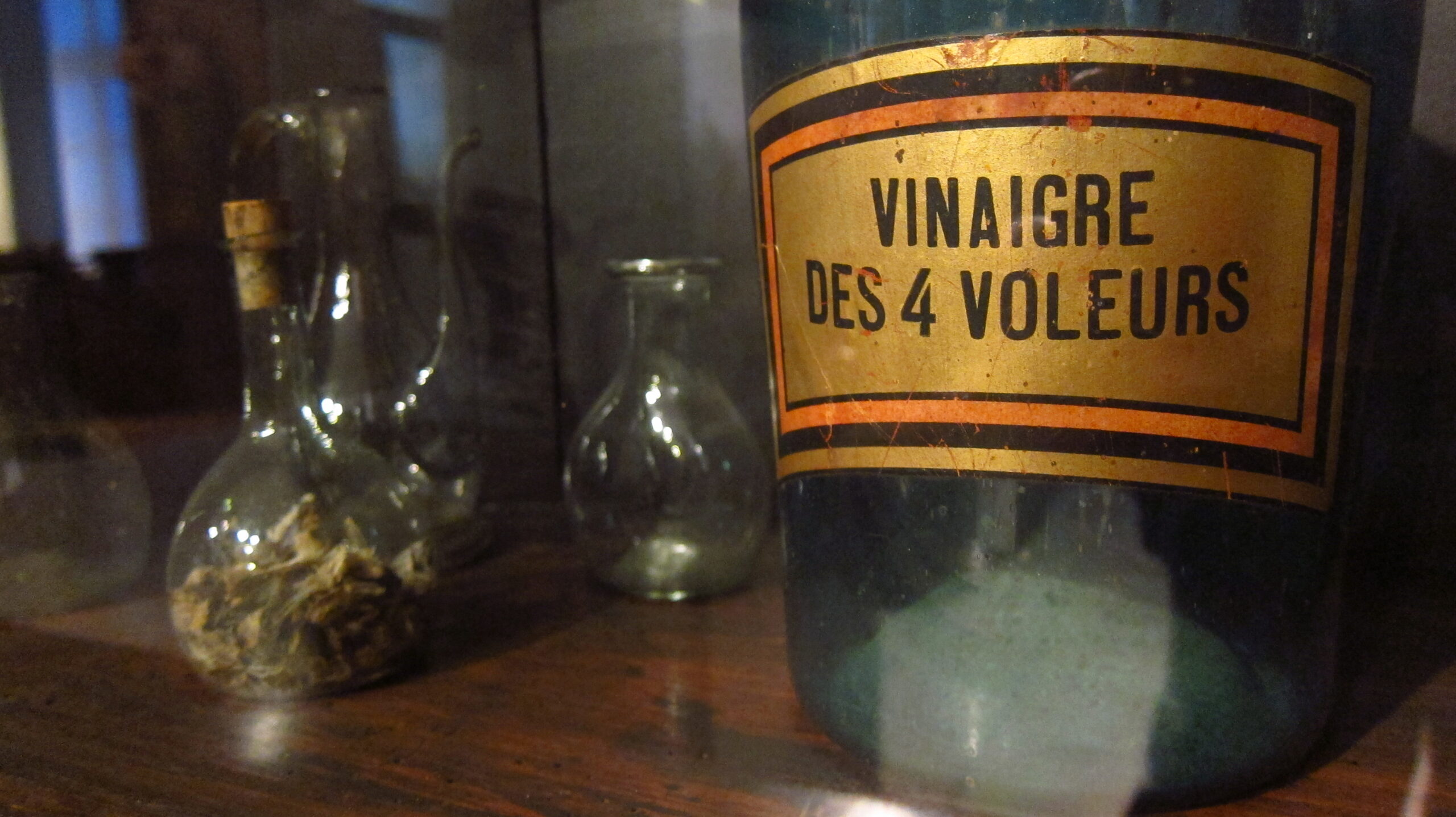Who knew there was a whole wide world of weird vinegar-flavoured things out there?

When the Black Death was ravaging medieval and early modern Europe, it was generally thought that such diseases were spread by miasmas of 'foul air'. Aromatised vinegars and other potent-smelling remedies were therefore used to dispel the dangerous vapours — as had been common practice since ancient times.
The so-called Four Thieves Vinegar is one such concoction. The origin of its name is unclear, but the recipe seems to have originated in a French city — either Marseilles or Toulouse — sometime between the 14th and 18th centuries. The name might stem from the group of four thieves who were said to have used it to allow them to rob the sick and dying without contracting plague, or from its supposed inventor, Robert Forthave (get it?). Whatever the original story, the name sounds good, and it has stuck.
Four Thieves Vinegar was traditionally infused with antimicrobial and, crucially, insecticidal herbs such as camphor, rue, and wormwood. Thus, it may indeed have had some ability to protect its users from the plague, which was spread by fleas. The garlic often found in the recipe today is probably a recent addition, reflecting the vinegar's modern transition from aromatic plague-dispeller to popular salad ingredient. (For more historical detail and primary sources, see this excellent writeup by Foods of England.)

In keeping with the 'four thieves' theme — and because I don't have wormwood or rue in my garden — I decided to keep my Fourth Thieves Vinegar recipe simple, using just four readily available ingredients. Use this zingy witches' brew as a tonic in hot water or a unique vinaigrette base.
Ingredients (all quantities are approximate)
Method
De-stem and roughly chop the herbs. Peel and chop the garlic. Add everything to a small jar and fill to the top with vinegar.
Close your jar with a tight-fitting lid, putting a piece parchment paper or clingfilm between the jar and the lid if the latter is metal to prevent corrosion. Leave to sit in a cool dark place for a few weeks, shaking occasionally.
Strain and discard the herbs before using your vinegar. It will keep for a long while but may become cloudy with time.
— Beatrix Swanson
(Image credit: Wikimedia Commons)
Who knew there was a whole wide world of weird vinegar-flavoured things out there?
Naturally, Artisan Damson & Sloe Vinegar works perfectly for dressing a salad, either in a vinaigrette or accompanied solely by good olive oil. However, there are lots of other interesting uses for this versatile ingredient. Below are a few ideas: first, a recipe for a breakfast or dessert, and then a few quick tips for […]
What’s in a name? Exploring the world’s perhaps most hotly contested vinegar category

The Old Nuclear Bunker,
Pednavounder,
Coverack,
Cornwall
TR12 6SE
01326 281135
info@artisanvinegar.co.uk